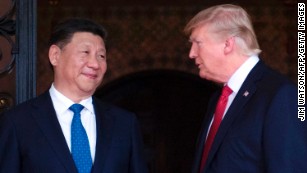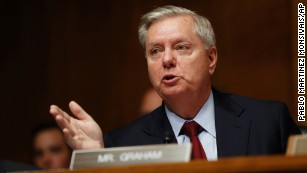Washington (CNN)Secretary of State Rex Tillerson said that the US is willing to sit down for talks with North Korea, but only if it relinquishes its pursuit of nuclear weapons.
Tillerson, speaking at the State Department press briefing, stressed that the US was not seeking regime change or looking to send its military "north of the 38th parallel" that divides North and South Korea. But he emphasized that the danger posed by Pyongyang, which test fired two intercontinental ballistic missiles in July, was unacceptable.
"We do not seek regime change. We do not seek an accelerated reunification of the peninsula. We do not seek an excuse to send our military north of the 38th parallel," Tillerson said during a surprise visit to the agency's briefing room on Tuesday.
"We are not your enemy, we are not your threat, but you are presenting an unacceptable threat to us and we have to respond," Tillerson said, speaking to North Korea directly. "We would like to sit and have a dialogue about the future."
"Our other options," Tillerson added, "are not attractive."
A willingness to talk if North Korea agrees to pursue denuclearization was also Obama administration policy, though it was never successful in getting Pyongyang to the table, and some analysts have questioned whether assumptions North Korea may be willing to scale down its arsenal are out of date.
Tillerson spoke about a series of challenges across the global stage, touching on Syria and the fight against ISIS, Iran's destabilizing activities in the Middle East and efforts to reach a peaceful resolution of the conflict in eastern Ukraine, the site of clashes between Russian-backed rebels and government troops.
The goal of all US foreign policy now, he said, was to make good on President Donald Trump's campaign slogan to "make America great again."
"That's not just a slogan," Tillerson said. "It is what guides our formulation" of policy, he said. But Tillerson cautioned that, "When we say 'America First,' it doesn't mean America alone."
The former ExxonMobil CEO said that dealing with potentially disruptive tweets from Trump, who has sent out 140-character blasts that have contradicted positions Tillerson has taken publicly, is just part of the job.
"It's part of the environment in which we work, we'll adapt to it," Tillerson said. "There's a lot of unexpected things that happen to us in the world of diplomacy. ... Whatever the President chooses to express, he expresses to everybody."
In July, Tillerson was asked at a gathering of oil executives whether Trump's tweets complicate his work, and he told them that the job was more "difficult" than his previous one.




 글쓰기
글쓰기